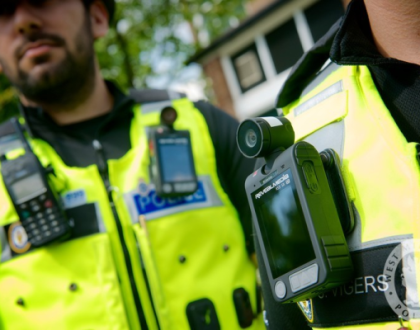What a Body Camera Can’t See

Last week, the Boston City Council held a public hearing on a proposal to outfit police officers with body cameras. As discussion continues among our city’s leaders on this issue, we ask them to consider the following.
Will a body camera on a police officer deter him or her from using unnecessary force? Possibly.
Will it record information that could help ensure justice if an interaction does become violent? Probably.
Will the presence of a body camera systematically dismantle stereotypes and build understanding, fundamentally changing the nature of community policing? No.
Ensuring that trust is built and remains between police and the communities they serve requires more than just recording interactions. A more effective and sustainable solution is institutionalizing programs that build relationships, dialogue and understanding in ways cameras cannot.
“[I have gained] invaluable information about what it is like to be part of the Boston communities as a young person. Their values, their belief systems, and how they approach the challenges in their life. I wouldn’t have taken in this information any other way,” stated a Boston Police Officer after completing YWCA Boston’s Youth/Police Dialogues program. In the program he had a series of facilitated conversations with Roxbury teens around stereotypes, the “stop snitching culture,” and what police/community interactions should look like. As a result, he says he is approaching his policing differently. “Before I interact with the youth I keep the concerns of the dialogues that were discussed in mind in order to better understand and interact with the youth,” he says. “I explain to the youth that we are just as human as they are, and I need their help in breaking down stereotypes on both sides of the spectrum.”
Unfortunately, a body camera does not break down stereotypes, and could even reinforce them. Cameras represent an attitude on the part of the community that the only thing stopping officers from using force is the threat of someone in power seeing them do it. Cameras represent the attitude on the part of police that there will inevitably be situations where they judge use of force is necessary, and they want evidence to support their actions. These attitudes leave both sides in defensive positions rather than building the trust necessary to make real societal change.
Fortunately, Boston Police Commissioner Evans seems to understand the need for meaningful change in the relationship between the police and community, and what is necessary to achieve it. He stated that, “Working hard to build strong relationships and building their trust and respect, that’s what it’s going to take to address what’s going on around the country — not a gadget on someone’s lapel.” BPD leadership took a step forward in this effort recently by including the Youth/Police Dialogues program in the Police Academy training for new officers. There have been talks to expand the program, and to explore how officers and youth that have gone through the program influence others in their community.
“When that kid used to see me, he would give me a look and spit on the ground,” said a BPD Officer that participated in a Youth/Police Dialogue in Jackson Square. “Now he says hi. To me that’s progress.” A body camera response can’t bring about this kind of progress, or even register that it is progress. As the City Council considers whether to mandate body cameras for accountability, it should also consider mandating programs for prevention.
